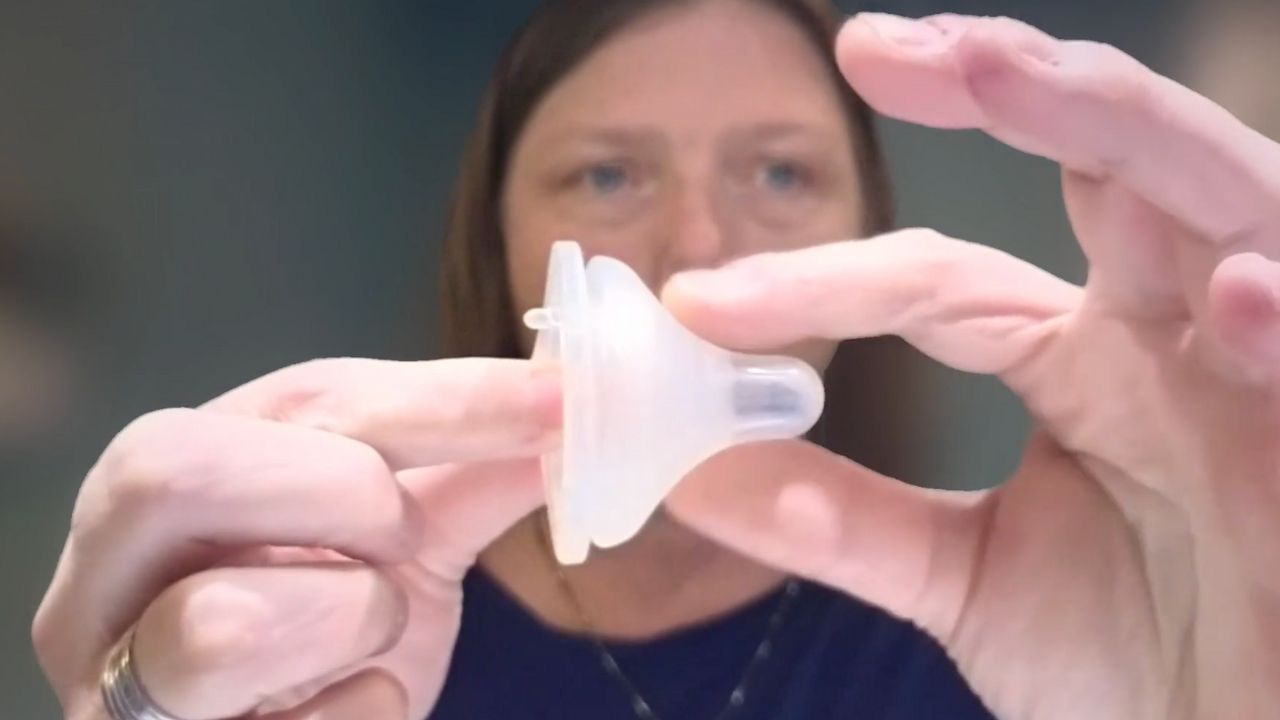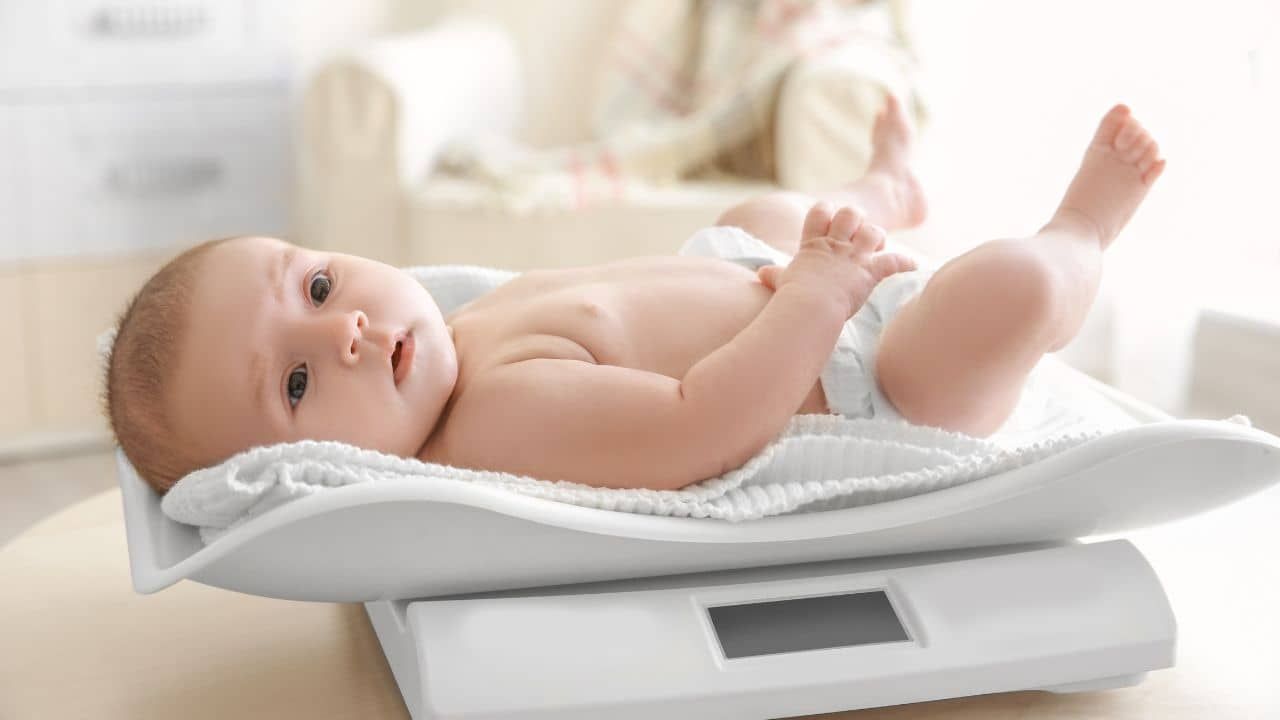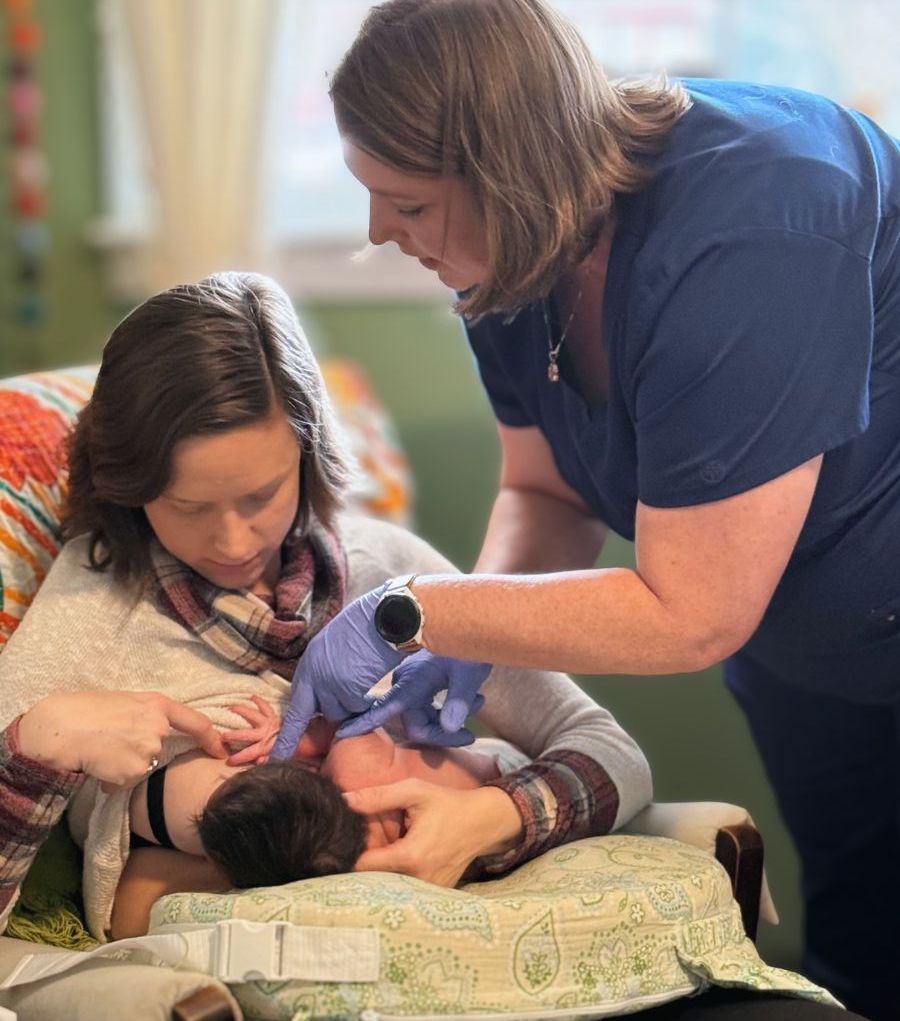
Hi, I’m Avery.
It's so nice to meet you.
I’m a lactation consultant, educator, and latching expert—and the founder of Nourished Young.
I didn’t become a lactation consultant because feeding came easily for me—I became one because it didn’t.
Like so many parents, I did everything “right,” and still found myself overwhelmed by latch pain, feeding stress, and advice that didn’t match what I was seeing in real life.
That experience taught me something important: when feeding is hard, most parents don’t need more tips — they need a clearer understanding of what’s actually happening, and support that fits their baby and their body.
I believe feeding support should:
- Make sense. You deserve answers that feel clear and grounded—not vague tips that leave you second-guessing.
- Be reflex-driven. Because babies don’t latch by willpower. They latch through biology.
- Be body inclusive. Feeding support should work for real bodies, exactly as they are—not just the idealized body most advice is written for.
- Support your feeding choices. Breastfeeding, chestfeeding, pumping, combo feeding, or bottle feeding—without pressure or judgment.
That experience shaped everything about how I support families now.
As an IBCLC lactation consultant, I’ve spent two decades teaching and supporting families—including nearly a decade as an IBCLC. I hold a Master’s degree in Science and a Master’s degree in Education, and my work is grounded in biology, reflexes, and real-life feeding mechanics.
Over the years, I’ve researched, explored, and developed resources for both parents and professionals worldwide—and I’ve built a reflex-driven approach that helps families understand what’s underneath feeding struggles, so support feels clearer, more effective, and more human.
While I support all families, I’m especially passionate about making latching support more accessible to every body—and helping parents feel informed, confident, and in control of their feeding choices.
However you want to feed your baby, I support you. Whatever way is best for you, I believe you.
Because when feeding feels better, everything feels better.
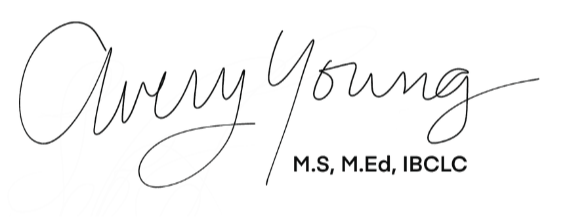
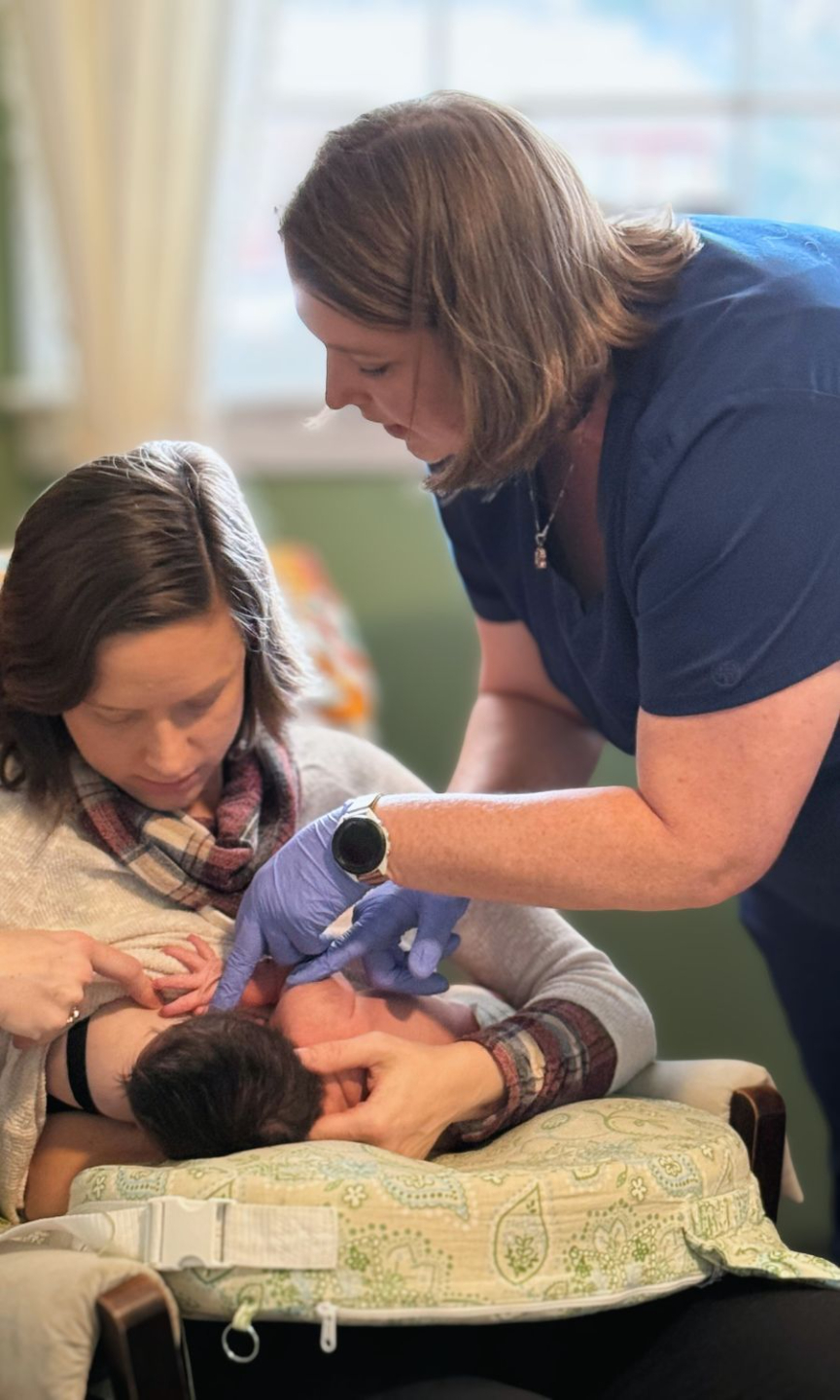
Hi, I’m Avery. It's so nice to meet you.
I’m a lactation consultant, educator, and latching expert—and the founder of Nourished Young.
I didn’t become a lactation consultant because feeding came easily for me—I became one because it didn’t.
Like so many parents, I did everything “right,” and still found myself overwhelmed by latch pain, feeding stress, and advice that didn’t match what I was seeing in real life.
That experience taught me something important: when feeding is hard, most parents don’t need more tips — they need a clearer understanding of what’s actually happening, and support that fits their baby and their body.
I believe feeding support should:
- Make sense. You deserve answers that feel clear and grounded—not vague tips that leave you second-guessing.
- Be reflex-driven. Because babies don’t latch by willpower. They latch through biology.
- Be body inclusive. Feeding support should work for real bodies, exactly as they are—not just the idealized body most advice is written for.
- Support your feeding choices. Breastfeeding, chestfeeding, pumping, combo feeding, or bottle feeding—without pressure or judgment.
That experience shaped everything about how I support families now.

As an IBCLC lactation consultant, I’ve spent two decades teaching and supporting families—including nearly a decade as an IBCLC. I hold a Master’s degree in Science and a Master’s degree in Education, and my work is grounded in biology, reflexes, and real-life feeding mechanics.
Over the years, I’ve spent countless hours researching, exploring, and developing resources for both parents and professionals worldwide—and I’ve developed a reflex-driven approach that helps families better understand what’s underneath feeding struggles, so support feels clearer, more effective, and more human.
While I support all families, I’m especially passionate about making latching support more accessible to every body—and helping parents feel informed, confident, and in control of their feeding choices.
However you want to feed your baby, I support you. Whatever way is best for you, I believe you.
Because when feeding feels better, everything feels better.


